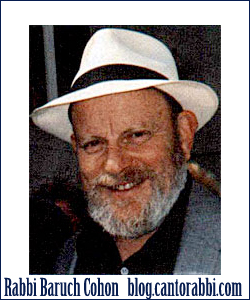Parsha Yitro (Ex.18-20)
Last weeks Torah narrative saw the Hebrew slaves freed from Egypt. Losing no time, this week we read of their arrival at Mount Sinai to receive the Torah. Leaving Egypt made them free. But not till they arrived at Sinai did they become a nation.
What made this motley crowd a nation? The Torah. It has been called the Jewish equivalent of a Constitution. Just as the U.S. Consitution proclaims a nation and includes the Bill of Rights, so the Torah validates a nation and includes the Ten Commandments which can well be described as a Bill of Rights and Wrongs. In fact, these ten ten statements, aseret ha-dibrot as they are called in Hebrew are what Moses first attempts to bring down the mountain to the people. The simple directness of the Big Ten constitutes their importance. Of course we all know how Moses was carrying the tablets of the Law, and partway down the mountain he saw his people dancing around a golden calf breaking the very law he was carrying. In shock he broke the tablets. That just underscores their value as a guide to life.
This Bill of Rights and Wrongs, these ten principles of conduct, inspired great scholars and humble people ever since Moses. Whether you learned them from your first teacher or Cecil deMille, from your clergyman or your mother, these are words to remember. Above the Holy Ark in the synagogue or on the wall of the courthouse, these are words to remember.
1-What is right? Acknowledge the One G-d who inspired you to be free.
2-What is wrong? Splitting your allegiance, trusting in idols whether humans or wealth or prestige or whatever I can get away with.
3-What is wrong? Perjury, swearing to a lie. Punishment will follow.
4-What is right? Remember the Sabbath. As the Creator rested after 6 epochal days, so we the creatures can take a day off once a week. We need to.
5-What is right? Honor your parents. Maybe they are not perfect. They are human. But they brought you into the world and rate your respect.
6-10-What is wrong? Murder. Adultery. Stealing. False testimony to frame a fellow human. And coveting, greed that leads to so many other violations.
Simple statements, yes. But we cannot leave them at that, can we?
Suppose One G-d is beyond your imagination, and you find it too difficult to believe in an eternal invisible power. What inspires you?
Suppose you see other people getting away with crooked or violent actions and prospering. Why should you stick to the straight and narrow?
Suppose you can gain some advantage by telling a little white lie?
Suppose your boss tells you either to work on the Sabbath or look for a new job?
Suppose your father is in jail and your mother ran off with a stranger. Do they still deserve your honor?
Suppose, like the character in the old film The Road Back, you are charged with murder and your first reaction is: Sure I killed him. In the war I killed lots of men.
Suppose your mate sues for divorce on the basis of infidelity. Cant someone love more than one bed partner?
Suppose you just happen to slide that extra candy bar in your pocket and walk out of the store?
Suppose you have the knowledge to save an accused rival from a questionable charge, but you hold back your testimony because the guy deserves it anyway?
And finally, is it really right that such a villain should have all that gold and I have none?
These questions demand answers in every generation. So we have by-laws, commentaries to explain and challenge and investigate the truth and legitimacy of even such a basic document as the Ten Commandments.
Arguably the clearest of such insights concerns the 6th commandment: Do not murder. We note that it does not say thou shalt not kill. That is an incorrect translation. The Hebrew is Lo tirtzakh,not Lo taharog. Killing can be done in more than one context. The one that is prohibited here is specifically murder. Not self-defense. Not warfare. Not capital punishment. Human authorities have to try an accused murderer, and a conviction must be based on admissible evidence. In the days of the Torah, that evidence required two eye-witnesses. One was not enough.
Notably also, the Torah does not offer special rewards for killing an enemy. No 70 virgins in the hereafter. No statues honoring the general or the terrorist who destroyed the most heathen.
Let me invite you to participate in these By-laws. Pick a commandment and comment on it. Ill look for your thoughts.


